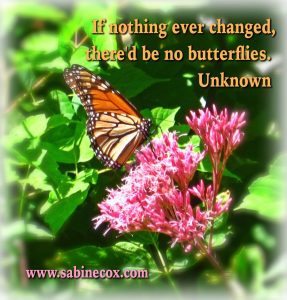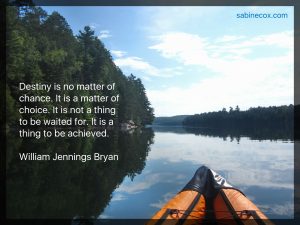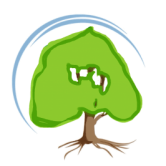A while back I found this quote:
.
 (If nothing ever changed, there’d be no butterflies.)
(If nothing ever changed, there’d be no butterflies.)
It’s a simple statement and one that is beautiful in it’s utter truth. Nothing says “transformation” or “change” quite as clearly as the life stages that result in a butterfly. Most people would agree that change is a good thing looking at it from the perspective of a butterfly; and yet, most of us are somewhat fearful of change.
I wonder, though, if our “fear of change”, the discomfort and the trepidation we feel, is misnamed. Just like so many people who say that they are afraid of death really fear the process of dying and the pain and heartbreak of it, is it possible that we don’t fear the change at the end of the process but the difficulties on the way to that end — and on the path beyond it?
We all deal with change every day and mostly with some ease. Upon waking we greet a day different from yesterday. The weather is different than it was yesterday. We may have a little ache where there was none the day before; or yesterday’s pain may feel better today. Our child wakes with a fever or her fever is gone. Our favourite pair of pants has been used as a cat bed. We can’t get the car started and need to take the bus. We meet someone and fall in love. A new work flow is introduced into our office. We have to deal with a new boss. Our favourite restaurant closed. We discovered a cute little spot just down the road. You get the picture.
Some of those changes may result in stress: more for some, less for others. But generally speaking we deal with them. We move along, adapt, and change. We grow, inwardly and outwardly. So what then are we afraid of when we say we are afraid of change (or stressed by it)? I believe that it may be choice we are afraid of.
When people speak about the fear of change they usually speak of big changes, changes that mean losing something in their lives: partners, connections, security, freedom, health, ease and comfort, belongings and belonging, independence, import, etc. What all these things have in common is that they necessitate choice, active, conscious choice in the face of an unknowable future.
Over the past years I have watched some of my friends and family struggle with cancer diagnoses. What struck me, after the first shock, was the difference in how they responded, in the choices they made. One went without questioning into the full schedule of treatments that the doctors recommended. Another utterly refused to do so and went an entirely natural route. For one the diagnosis was a wake-up call to make big changes in life and relationships, for another it resulted in further withdrawing from anything new and challenging. There are no right or wrong choices here. What I saw, though, was that in this moment of crises, of real and inevitable change, choices were made; some from a place of fear maybe, others with defiance or hope. But they all knew that they had to make a choice — and for some of them that was the scariest part of the experience: “what if I choose the wrong way?”
This summer I had another opportunity to do a destiny learning workshop with my husband, Timothy. This time it was a one-on-one (or better a one-on-two) process with only one participant. Destiny learning is a powerful process that teaches us to be observant of the subtle forces, some of them remnants from life times long past, that influence our actions in any given moment. It also can help us understand some of the deeper (or higher) reasons for the choices we feel compelled to make. After having done this work for a while now, my relationship to choice has changed. Whenever I hear someone say: “I simply didn’t have a choice,” I stop and try to “see” other possible choices they did have. Truth is: there always is another choice — it just may be a very unpalatable one. And often we can’t see the other choice — even a happier and healthier choice — because of some deep-seated and age-old patterns we aren’t even aware of. Destiny learning has helped me see those patterns with more clarity, even if I can’t always understand them right away. But seeing that they are there, understanding that there always is another choice has resulted in a much calmer relationship with change — at least for me.
Another powerful tool in this work of understanding our choices is biography work. Like destiny learning it teaches us to look at the subtle forces at work in our lives, especially those brought into this life through forces of destiny and karma. When, at the beginning of this year, I found myself in a place of inner crisis and questioning, it was through biography work that I realized that I had met up with a very specific life pattern, one that was mirrored in different ways and on different levels of my life over the years. Understanding that, effectively putting my current struggles into relationship with the whole of my life and into the perspective of a whole life’s development, made the choices clearer and the resulting change exciting.
We live in a society in which choosing is becoming increasingly unimportant. Pretty much anything can be changed at any time. Change on that level becomes easy because it doesn’t require actual, real choice. What I pick right now doesn’t matter, it can be changed with the click of the mouse, in no time. The delete button and its equivalents in other areas of life such as no-questions-asked returns has made careful consideration if not obsolete then at least much less important. There often are no real consequences.
If the delete button has reduced our need to choose it also has reduced the opportunities to learn how to choose. But there are still many life situations when we have to make a choice: having a child, getting a critical health diagnosis, dealing with a job loss or the loss of a loved one are some of the bigger ones. Those choices aren’t deletable or returnable. Some life events have lasting consequences and require us to live with our choice for a long, long time. The less we learn to make choices, the more unsettling those life situations become, the deeper the fear of change is; and the deeper that fear is, the more we withdraw, stagnate, avoid life. We fall into depression and anxiety.
In the end, we have to face the truth:
Life = Change, constant and inevitable change.
Change = Choices
Some of those choices may turn out to be wrong, maybe even catastrophic. But unless they lead to our actual death, we will have an opportunity to move on, to make other choices, to change our lives again. Through it all we grow, we ripen, we mature. We build the self with which we identify through the choices we make — and we can only learn to make choices by taking the risk of making the wrong one. It’s not always an easy road to go but it is, in the end the only way forward. The other choice is stagnation or moving back.
.

(Destiny is no matter of chance. It is a matter of choice. It is not a thing to be waited for, it is a thing to be achieved.) William Jennings Bryan

